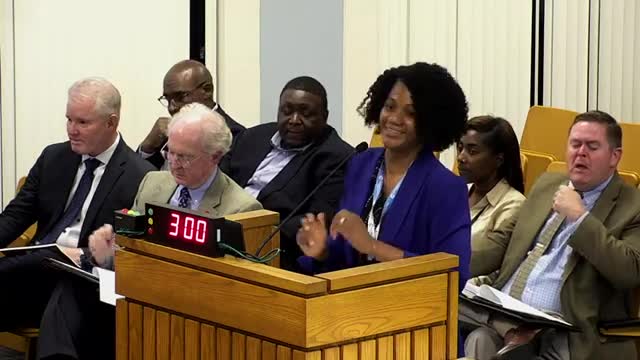Cumberland County health department reports early results from doula pilot serving uninsured and underinsured mothers
Get AI-powered insights, summaries, and transcripts
Subscribe
Summary
County health officials told commissioners the year‑old doula pilot has enrolled 44 clients so far, serving diverse ZIP codes and linking families to wraparound services; officials said more outcome data (C‑section, preterm birth) will be available in later quarters.
Cumberland County health officials on Monday briefed the Board of Commissioners on a year‑old pilot program that pays community doula agencies to provide prenatal and postpartum support to uninsured and underinsured pregnant people.
The health department reported it has served 44 clients so far — about 73% of the program’s 60‑person target — with services that include at least three prenatal visits, an in‑home or near‑birth postpartum visit within two days of delivery and another check at six weeks. The pilot, funded with $150,000 approved by the board for fiscal year 2024–25, contracted two local doula agencies to start services in January 2025.
Health department staff said the program focuses on populations and ZIP codes with historically poorer maternal and infant outcomes. “We proposed, last year to invest in birth doula services as one of many strategies that we are implementing to have an impact — a positive impact — on those outcomes,” Dr. Green said during the presentation, framing the pilot as one part of a larger effort to reduce infant mortality and support families.
Why it matters: doulas are an evidence‑based support that research links with lower cesarean rates, fewer preterm births and higher breastfeeding initiation. Health staff said the pilot aims to reach people who have health insurance that does not cover doula services as well as people who are uninsured.
What the health department reported - Clients served: 44 enrolled to date; one contracted agency already at capacity. Full program capacity is 60. - Demographics: staff said the majority of enrolled clients identified as African American or Hispanic and most mothers were under age 35. - Clinical and social needs: an estimated 13–20% of clients had identified substance‑use or mental‑health disorders; staff listed common barriers including domestic violence, housing instability, transportation, childcare, language and cultural barriers. - Early process measures: most clients averaged three to four prenatal visits and two to four postpartum contacts from the doula agencies; much of the support occurred in homes or alongside clinic visits. Health staff said 21 clients had already given birth and were initiating breastfeeding and that 14 infants were enrolled in WIC.
Program operations and partnerships County staff said the two awarded agencies are Central Carolina Doulas and Divine Goddess Doulas. Agencies were required to hire trained doulas and to participate in social determinants of health (SDOH) training. The doulas meet quarterly with health department leadership and provide updates to the county’s perinatal task force.
Health staff said doulas have helped link families to other public‑health services and community resources. The department said it used other public‑health funding to supply some families with blood‑pressure cuffs, car seats and transportation assistance when needed, and that doulas were added to an existing childbirth education class and participated in community health fairs and home‑visitor safety training.
Language access: staff said one doula is bilingual in Spanish and that translated materials have been provided where possible, but noted doulas do not always have access to the county health department’s mobile interpreter services for in‑home visits.
Next steps: the health department said it will report additional clinical outcomes in the next quarters, including c‑section rates, preterm births, inductions and other complications. Commissioners were told a bid award for 2026 doula services is on the board’s agenda for future action.
Commissioner response: Commissioners praised the pilot’s early results and emphasized the need for wraparound services and sustained funding; Commissioner Adams described the program as having “exceeded what we talked about” when the board approved the pilot funding.
No formal board action was requested or taken at the presentation.
